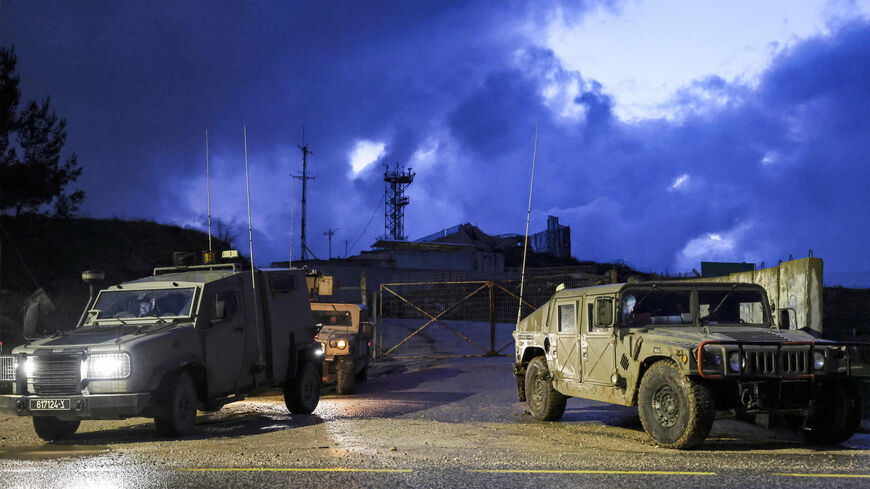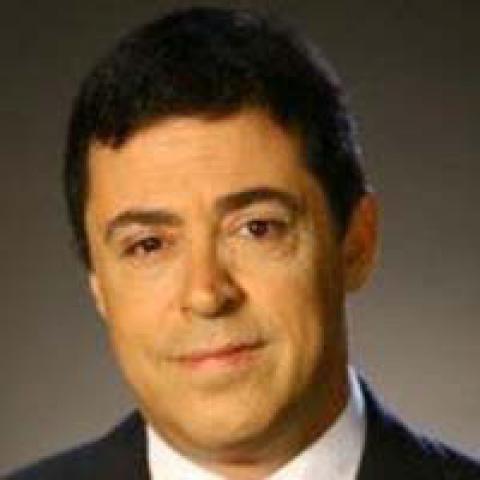As of Friday morning, Israeli security agencies are still searching for the identity of an assailant who infiltrated into the country from Lebanon on Monday. The attacker exploded a device on the roadside in the north of the country, seriously injuring a driver. Though the assailant was later killed, the Israel Defense Forces (IDF) are still concerned over this precedent.
The incident started last Monday. Residents of northern Israel experienced three days of grim uncertainty and apocalyptic rumors after photos appeared on social media depicting the arrest at gunpoint of an unidentified man adjacent to the border fence with Lebanon. The rumors about the unexplained arrest of the cowering man were linked on social media to a powerful roadside explosion early Monday near Megiddo Junction, some 40 miles south of the border, in which an Israeli driver, an Arab citizen of Israel, was badly wounded.
No explanation was given for this link nor for these events because the military censor imposed a sweeping gag order, further fueling fears. According to one rumor, four Hezbollah members had infiltrated Israel from Lebanon through an attack tunnel and almost carried out a mass terror attack. Emerging complaints by mayors of northern Israeli towns about lack of government funding for anti-rocket shelters only served to confuse the matter further.
When the gag order was finally lifted on Wednesday, the facts turned out to be far removed from the rumors. According to the official army and Shin Bet security agency statement, a terrorist had indeed infiltrated Israel from Lebanon, the first such infiltration in many years. He was said to be armed and skilled. His point of entry is not yet clear, nor his organizational affiliation. Most indications obviously point to Hezbollah, which controls much of southern Lebanon. Israeli officials say that even if the infiltrator was a Palestinian who had undergone Shiite radicalization by Hezbollah, it is holding Hezbollah chief Hassan Nasrallah responsible.
Either way, the infiltrator made his way to the Megiddo area, planted an explosive device and returned toward the border fence — all under the vigilant watch of the military, police and Shin Bet. It took these agencies and their intelligence arms far too long to connect the dots and locate the car in which he was traveling with an apparently duped Israeli who had driven him. After scouring the roads for many hours, the vehicle was located and stopped. Special forces ordered the two passengers out, but only the driver complied and came out with his hands in the air. His passenger refused. According to the official reports, he was shot dead just as he was about to detonate the powerful explosive belt he was wearing.
"If this was a terrorist that Hezbollah sent into Israel," a senior Israeli military official told Al-Monitor on condition of anonymity, "it means that someone decided to take a risk and violate the rules of the game, even at the cost of war in the north." If this "someone" is Nasrallah, it could spell the collapse of the long-standing mutual deterrence between Israel and Hezbollah achieved after their 2006 war.
"To the best of our knowledge, there is no change in the fact that Nasrallah has been deterred by Israel since the second Lebanon war," a senior Israeli security official told Al-Monitor on condition of anonymity. "We do not yet know who deployed this terrorist, but we know that a professional and precise attack of this kind — for which we have been preparing a long time — cannot happen on this front without Nasrallah, and this worries us."
Israel is deeply concerned, less by the events themselves than by the circumstances under which they occurred. Many former Israeli officials have warned in recent weeks that Israel’s enemies are emboldened by the mass public protests against the judicial overhaul being fast tracked through the Knesset and indications of its crumbling internal cohesion. The protests have spread to manifestations of disobedience on the part of reserve officers who form the backbone of many security units, among them the air force and cyber and intelligence forces, as well as the Mossad and Shin Bet.
Hezbollah might still be deterred by the IDF and aware that the Israeli army has since only grown stronger. Most assessments say Nasrallah is probably not motivated at present to confront the strong Israeli army. Still, this scenario is not being discounted by Israeli security experts.
Nasrallah’s rhetoric in recent weeks has given credence to such a possibility. Addressing followers, Nasrallah claimed Israel may not survive to celebrate its 80th birthday, referring to its upcoming 75th Independence Day. Hamas leaders Marwan Issa from the Gaza Strip and Saleh al-Arouri have also warned of “surprises” for Israel ahead, as Muslims prepare to mark the holy month of Ramadan, which invariably generates tensions in the West Bank, Gaza and east Jerusalem. In Israel, meanwhile, rhetoric by nationalist extremists like National Security Minister Itamar Ben-Gvir and Finance Minister Bezalel Smotrich continue to stoke the fires simmering on both sides.
The diplomatic arena is hardly encouraging, either. Prime Minister Benjamin Netanyahu is seeing his coveted goal of normalization with Saudi Arabia going up in these spreading flames, as Riyadh renews relations with its sworn enemy — rather than with Israel with which it conducts a thriving behind-the-scenes relationship. The United Arab Emirates — one of the four Muslim countries that has normalized relations with Israel in recent years, in addition to Bahrain, Morocco and Sudan — has followed suit; Bahrain is also heading there.
The Israeli-American concept of a tacit Israeli-led regional Sunni defense alliance against Iran seems to be collapsing, both because the United States has other fish to fry and because Israel is signaling weakness. Saudi Crown Prince Mohammed bin Salman and Emirati President Mohammed bin Zayed Al Nahyan see the direction in which Netanyahu is leading Israel and are less than keen to jump on this unstable bandwagon.
Few would want to be in the shoes of Israel’s military chief — Lt. Gen. Herzl Halevi — and fewer still in those of Israeli air force commander Maj. Gen. Tomer Bar. Of all the protests and petitions by reserve officers and soldiers in elite military units, the most troubling are those by reserve pilots who form the bulk of the country’s aerial combat force. Anyone familiar with the sentiment among many of these airmen understands how quickly it could undermine the preparedness of the air force on which Israel counts to deter its enemies.







